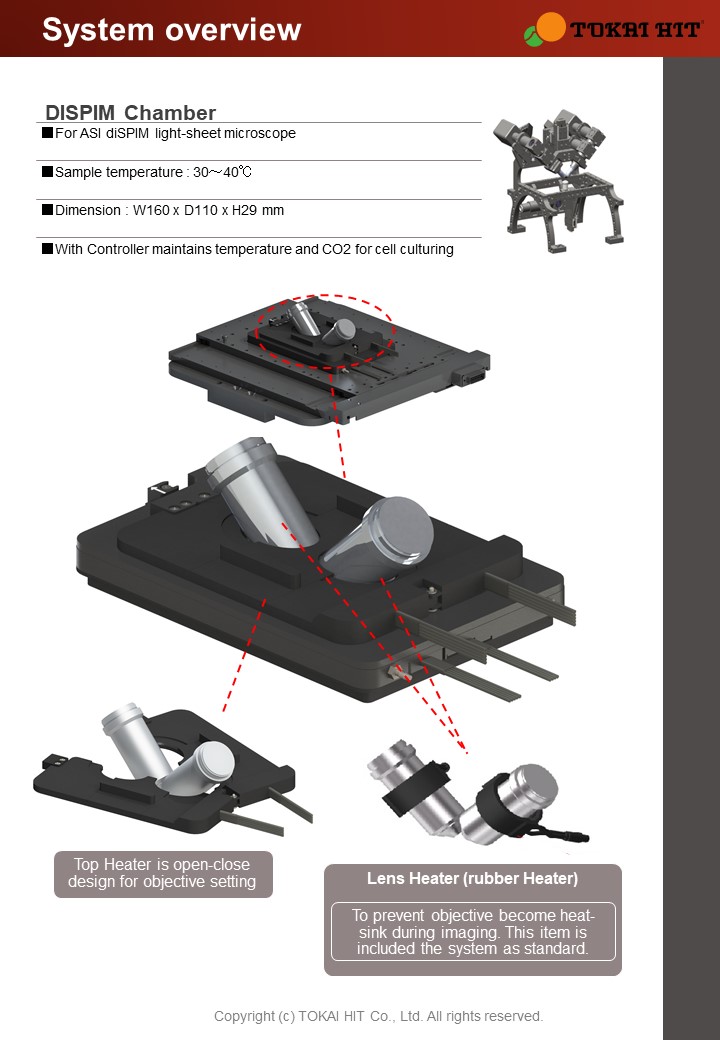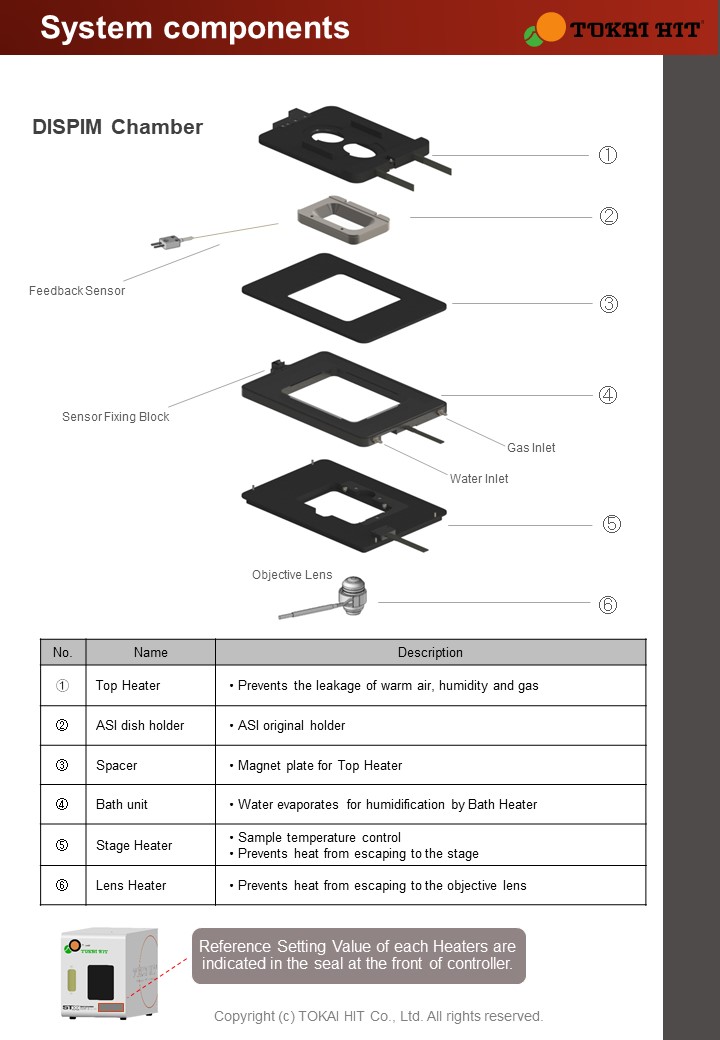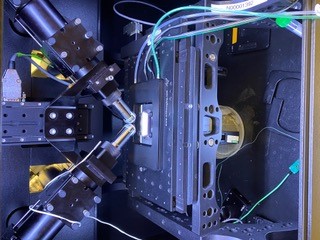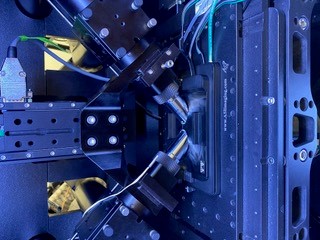Environmental Control
For long-term imaging of some samples the environment must be tightly controlled, including temperature, humidity, and gas concentrations (e.g. CO2).
Temperature can either be controlled locally around the sample or the bulk of the microscope can be enclosed and kept at a constant temperature. ASI makes an incubator enclosure that fits around the entire diSPIM on RAMM. Incubator boxes for diSPIM on other inverted microscopes are available from by 3rd parties.
Tokai Hit makes an insert with objective heaters for temperature control without requiring an enclosure, description here . Besides it, they developed an incubator based system which can maintain temperature, CO2, and humidity with a closed environment during imaging, description here .
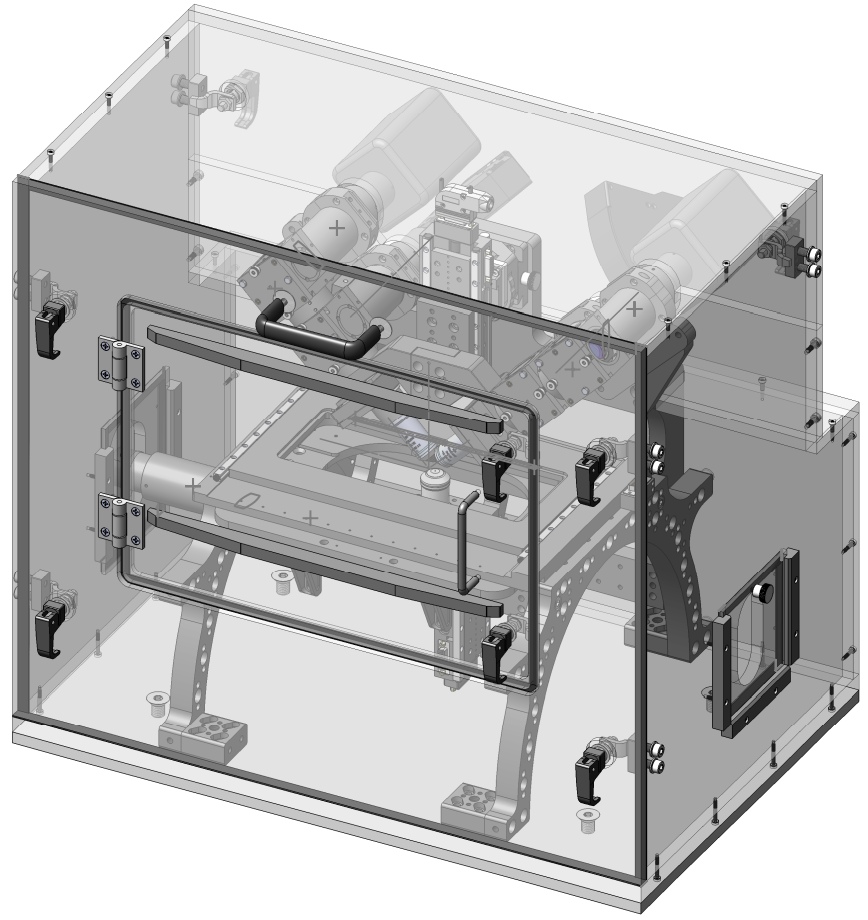 Figure 1: Model of a diSPIM on RAMM in incubator enclosure.
Figure 1: Model of a diSPIM on RAMM in incubator enclosure.
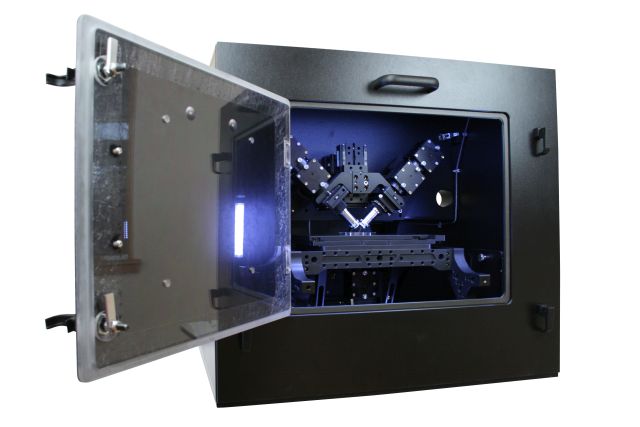 Figure 2: Photo of a diSPIM on RAMM in incubator enclosure.
Figure 2: Photo of a diSPIM on RAMM in incubator enclosure.
Various manufacturers make environmental control equipment that can be connected to the enclosure. Generally they control temperature, humidity, and CO2. Temperature is usually controlled for the entire incubator enclosure, and CO2/humidity are controlled locally near the sample. The Okolab “H201-T-UNIT-BL” has been used to heat both the ASI-made incubator for RAMM-mounted diSPIM as well as incubator boxes made by others for diSPIM mounted on other inverted microscopes; it goes from slightly above ambient to 40 degrees C. Tokai Hit makes a local thermal control system (i.e. no enclosure needed) adapted for diSPIM but as an open system evaporation may be a concern. Other viable thermal control options probably exist.
Okolab makes an insert “H201-ASI-DISPIM” for local CO2/humidity control which accommodates the typical diSPIM sample chamber (stainless steel, 24×50 mm coverslip) and provides a local environment for gas and humidity control; drawings here. This insert has been successfully used with the Okolab “CO2-UNIT-BL” for CO2 control and either the Okolab “HM-ACTIVE” (user-set humidity level) or “HM-VF” for humidity (for near 100% humidity). Okolab also offers controllers for O2 and CO2/O2 combination.
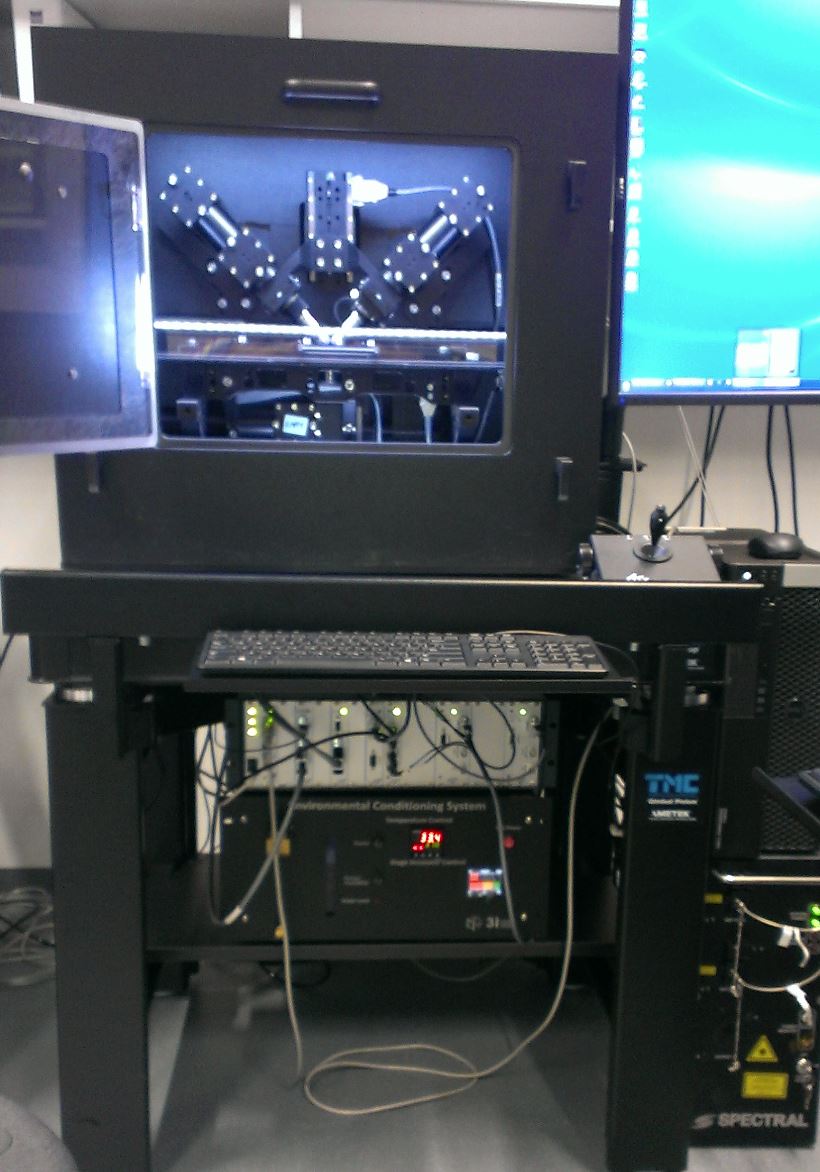 Figure 3: Full diSPIM system installed in a lab (ca. summer 2014) including air table, laser, computer, environmental control, Tiger controller, etc.
Figure 3: Full diSPIM system installed in a lab (ca. summer 2014) including air table, laser, computer, environmental control, Tiger controller, etc.
